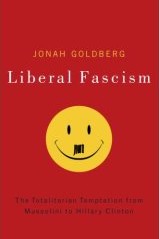The
previous post about John Yoo's nonchalant attitudes towards the torture of children came about because of an Op Ed piece written by Mr. Yoo in yesterday's NY Times (
what liberal media?), wherein he displays, among other charming traits, his stunning lack of awareness that in the 1970's the Soviet Union did, in fact, maintain a vast arsonal of intercontinental ballistic missiles armed with thermonuclear warheads and targetted on all major US cities -- a state of affairs known to many of us as the
cold war.
I originally peppered the text of this article with
emphases, but sometime the exercise really must be left to the reader. (I've included the full text of the article because it will soon disappear behind the Times Select wall.)
Op-Ed Contributor
How the Presidency Regained Its BalanceBy JOHN YOO
Published: September 17, 2006
Berkeley, Calif.
FIVE years after 9/11, President Bush has taken his counterterrorism case to the American people. That’s because he has had to. This summer, a plurality of the Supreme Court found, in Hamdan v. Rumsfeld, that Congress must explicitly approve military commissions to try suspected terrorists. So Mr. Bush has proposed legislation seeking to place the tribunals, and other aggressive antiterrorism measures, on a sounder footing.
But the president has broader goals than even fighting terrorism — he has long intended to make reinvigorating the presidency a priority. Vice President Dick Cheney has rightly deplored the "erosion of the powers and the ability of the president of the United States to do his job" and noted that "we are weaker today as an institution because of the unwise compromises that have been made over the last 30 to 35 years."
Thus the administration has gone to war to pre-empt foreign threats. It has data-mined communications in the United States to root out terrorism. It has detained terrorists without formal charges, interrogating some harshly. And it has formed military tribunals modeled on those of past wars, as when we tried and executed a group of Nazi saboteurs found in the United States.
To his critics, Mr. Bush is a "King George" bent on an "imperial presidency." But the inescapable fact is that war shifts power to the branch most responsible for its waging: the executive. Harry Truman sent troops to fight in Korea without Congressional authority. George H. W. Bush did not have the consent of Congress when he invaded Panama to apprehend Manuel Noriega. Nor did Bill Clinton when he initiated NATO’s air war over Kosovo.
The Bush administration’s decisions to terminate the 1972 antiballistic missile treaty and to withdraw from the International Criminal Court and the Kyoto accords on global warming rested on constitutional precedents going all the way back to Abraham Lincoln.
The administration has also been energetic on the domestic front. It has re-classified national security information made public in earlier administrations and declined, citing executive privilege, to disclose information to Congress or the courts about its energy policy task force. The White House has declared that the Constitution allows the president to sidestep laws that invade his executive authority. That is why Mr. Bush has issued hundreds of signing statements — more than any previous president — reserving his right not to enforce unconstitutional laws.
A reinvigorated presidency enrages President Bush’s critics, who seem to believe that the Constitution created a system of judicial or congressional supremacy. Perhaps this is to be expected of the generation of legislators that views the presidency through the lens of Vietnam and Watergate. But the founders intended that wrongheaded or obsolete legislation and judicial decisions would be checked by presidential action, just as executive overreaching is to be checked by the courts and Congress.
The changes of the 1970’s occurred largely because we had no serious national security threats to United States soil, but plenty of paranoia in the wake of Richard Nixon’s use of national security agencies to spy on political opponents. Congress enacted the War Powers Resolution, which purports to cut off presidential uses of force abroad after 60 days. It passed the Budget and Impoundment Act to eliminate the modest presidential power to rein in wasteful spending. The Foreign Intelligence and Surveillance Act required the government to get a warrant from a special court to conduct wiretapping for national security reasons.
These statutes have produced little but dysfunction, from flouting of the war powers law, to ever-higher pork barrel spending, to the wall between intelligence and law enforcement that contributed to our failure to stop the 9/11 attacks.
The 1970’s shifted power from the president to Congress, and the latter proved a far more accommodating boss to federal agencies looking for budget dollars — a fragmented legislature is obviously much easier to game than a chief executive. But 535 members of Congress cannot manage day-to-day policy. A legislature’s function is to draft the laws of the land, set broad goals and spend taxpayer revenues in the national interest, not to micromanage.
The judiciary, too, has been increasingly assertive over the last three decades. It has shown far less deference to the executive in this war than in past conflicts. This energetic judiciary is partly a response to Congress’s bulked-up power; the courts have had to step in to try to repair the problems created by vague laws that try to do too much, that state grandiose goals, while avoiding hard policy choices.
Congress’s vague legal mandates are handed off to the states or the agencies or the courts to sort out. Our legislators rarely turn their attention to the problems created by laws that are old and obsolete, or of dubious relevance to new issues. (This is why the Hamdan decision was less a rebuke of the presidency than a sign of frustration with Congress’s failure to update our laws to deal with the terrorist menace.)
Unfortunately, much of the public misunderstands the true role of the executive branch — in large part because today’s culture transforms presidents into celebrities. On TV, a president’s every move seems central to the universe, so he has the image of power that far exceeds the reality. But as the presidential scholar Richard Neustadt, a liberal icon, argued, the presidency is inherently weak, while mythic things are expected of and attributed to it — like maintaining national security and economic growth.
Today many pundits and political scientists seem to want the president’s power to be the sum of his communication and political skills, his organizational ability, his cognitive style and emotional intelligence. It is almost as if any president who uses the constitutional powers allocated to his office to effect policy has failed, not succeeded.
But the presidency, unlike Congress, is the only office elected by and accountable to the nation as a whole. The president has better access to expertise from the unified executive branch — including its top secret data — than the more ad hoc information Congress develops through hearings and investigations.
That is why, while jealous of its prerogatives, Congress usually goes along with a president’s policy decisions. A strong executive can accept responsibility for difficult choices that Congress wants to avoid. The Republican Congress, for instance, wanted to give President Bill Clinton a line-item veto, only to be blocked by the Supreme Court. Despite hearings and criticism of the energetic executive, Congress has yet to pass laws reining in Mr. Bush very much.
Congress has for years been avoiding its duty to revamp or repeal outmoded parts of bygone laws in the light of contemporary threats. We have needed energy in the executive branch to fill in that gap. Congress now must act to guide our counterterror policy, but it should not try to micromanage the executive branch, particularly in war, where flexibility of action is paramount.
-- John Yoo, a deputy assistant attorney general from 2001 to 2003, is a professor at the University of California at Berkeley School of Law and the author of "War by Other Means."


